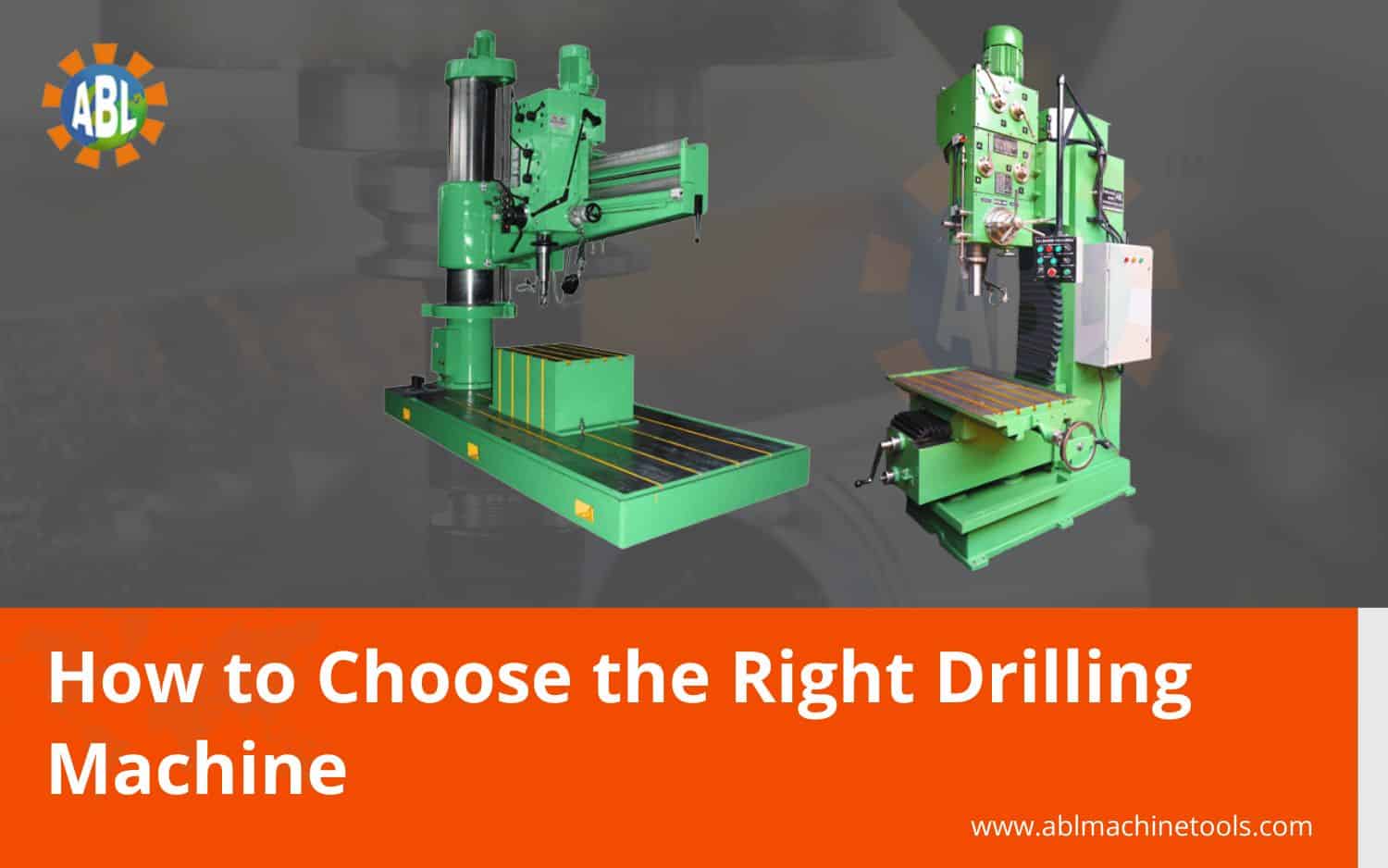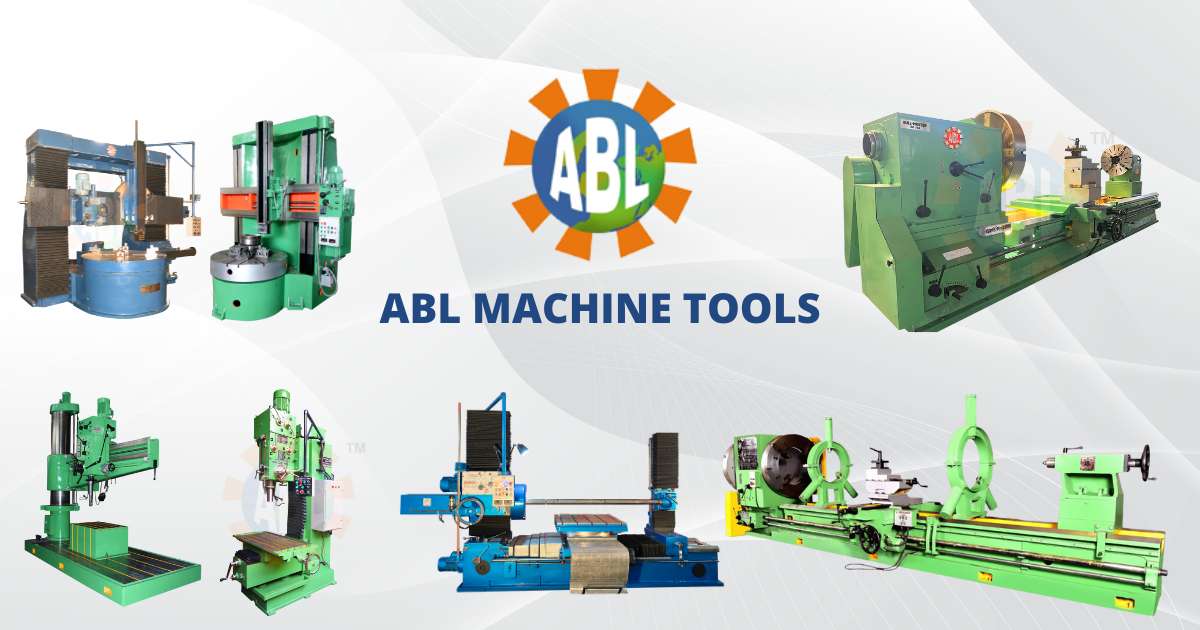
If you’ve ever shopped for a drilling machines, you already know how confusing it gets. There are so many types, price ranges, and features thrown at you. Some drills are compact and simple, while others look like they belong in a factory. And if you’re setting up or upgrading your workshop, the last thing you want is regret after spending your money.
So how do you actually choose the right one? Let’s break it down step by step.
Why Picking the Right Drilling Machine Matters
The drilling machine is one of the most used tools in any workshop. Whether you’re working with wood, metal, or even stone, you’ll rely on it for precise holes, shaping, or sometimes even polishing and sanding with attachments.
- The right machine saves you time.
- It improves accuracy.
- It prevents damage to materials.
- And honestly, it just makes working more enjoyable.
On the other hand, the wrong one can slow you down, burn out faster, or even limit the projects you can take on.
So before pulling out your wallet, let’s get a clear picture of the different options you have.
Understanding the Types of Drilling Machines
Not all drills are created equal. Some are designed for heavy-duty industrial use, some for small home repairs, and others for workshop-level flexibility.
Here are the main types you’ll come across:
1. Handheld Drilling Machine
- Light, portable, and affordable.
- Perfect for small tasks like making holes in wood, metal sheets, or plastic.
- Best for hobbyists or workshops that don’t need heavy-duty drilling.
These are the ones you probably already have at home if you do small DIY repairs.
2. Bench Drilling Machine
- Fixed on a workbench.
- Offers more precision than handheld drills.
- Usually has adjustable speed and depth settings.
- Suitable for small to medium workshops.
If you’re aiming for cleaner, accurate holes, this type is a game-changer.
- Larger and mounted on a floor stand.
- Handles bigger jobs and thicker materials.
- Provides stability and consistent accuracy.
- A must-have for serious workshops handling metal fabrication or bigger woodworking projects.
- The drill head moves along a radial arm.
- Useful for drilling large and heavy workpieces that can’t easily be moved.
- Good for workshops dealing with bulky components.
5. CNC Drilling Machine
- Computer-controlled.
- Designed for professional use in industries.
- Not always ideal for casual workshops because they’re expensive and complex.
Key Factors to Consider Before Buying a Drilling Machine
Alright, now that you know the types, let’s talk about how to actually pick the right one.
Think of this as a checklist for your workshop:
1. Define Your Purpose
Ask yourself: what do you plan to use it for?
- Small DIY projects → handheld or bench drilling machine.
- Furniture making or light metalwork → pillar drilling machine.
- Heavy fabrication or large parts → radial drilling machine.
Your purpose directly decides the type of drilling machine you should lean towards.
2. Material You’ll Be Working On
Not all drills are suited for every material.
- Wood → even handheld drills can work.
- Metals → you need more power and stronger bits.
- Masonry or stone → hammer drilling machines or high-powered units.
If you often switch between wood and metal, go for a machine with adjustable speed because softer materials require lower RPM and harder materials need higher torque.
3. Power and Speed
Power is usually measured in watts for electrical machines.
- Light-duty: 300–500 watts.
- Medium: 500–800 watts.
- Heavy: 800+ watts.
Speed settings are just as important. You don’t want one fixed speed for everything. A drilling machine with variable speed will handle different materials better.
4. Size and Space in Your Workshop
Do you have limited bench space? A compact benchtop drilling machine may be better.
Have a big workshop and deal with large workpieces? A free-standing pillar drill will make more sense.
It’s easy to get tempted by bigger machines, but think about the actual space you have before ordering one. Been there, regretted it.
5. Budget and Long-Term Value
Price is always a deciding factor, but instead of looking at just the upfront cost, think long-term.
- Cheaper machines may wear out faster or lack features.
- Quality machines last years and often come with service support.
It’s smarter to invest a little more in a reliable brand than replacing flimsy machines every year.
6. Safety Features
Never ignore safety.
- Look for machines with overload protection.
- A steady base reduces accidents.
- Emergency stop buttons are a plus for bigger drilling machines.
If your workshop is shared with others, safety becomes even more critical.
Features That Actually Make a Difference
Many brands will throw technical terms at you. But honestly, only a handful of features make a big difference in real life.
- Variable Speed Control → Adjusts drilling speed for wood, metal, and other materials.
- Depth Stop → Keeps holes consistent in depth.
- Chuck Size → Larger chucks allow bigger drill bits.
- Rotating Table (in some machines) → Lets you drill holes at different angles.
- Reverse Function → Handy for unscrewing or removing drill bits from stuck holes.
You’ll use these features often, so don’t skip over them.
Brands to Look At (From Personal Experience)
I’m not a brand promoter, but I’ve tried multiple drilling machines over the years. A few brands tend to stand out for reliability:
- Bosch → Great balance of durability and price.
- Makita → Solid build, excellent for professional workshops.
- Dewalt → Powerful machines, reliable for heavy work.
- Local Brands → Often cheaper, good for light workshop use if you don’t need pro-grade performance.
If you’re just starting, even a mid-range Bosch bench drill can last years without giving major trouble.
Mistakes People Make When Buying a Drilling Machine
I’ve seen this happen (and done a couple of these myself):
- Buying a big machine “just in case” without real need. Ends up gathering dust.
- Ignoring chuck size and later realizing it won’t fit larger drill bits.
- Going too cheap and ending up with a drill that overheats in a few months.
- Forgetting about safety while focusing only on power.
If you avoid these, you’re already ahead.
Maintenance Tips to Keep Your Drilling Machine Lasting Longer
A good machine deserves care. Even the strongest drill won’t last if you treat it badly.
- Keep it clean. Dust and metal shavings shorten life.
- Oil moving parts regularly.
- Use the right drill bits for the right materials.
- Don’t push the machine beyond its capacity.
A little maintenance goes a long way.
So, Which Drilling Machine Should You Buy?
Let’s keep it simple:
- DIY / Hobbyist work → Handheld drilling machine or a small bench drill.
- Small to medium workshop → Bench or pillar drilling machine.
- Professional fabrication → Pillar or radial drilling machine.
- Industrial use → CNC drilling machines.
Choose based on your project scale, material, budget, and space. Don’t just follow trends or what looks fancy in catalogs.
The drilling machine is one of those workshop essentials that can either make your work smooth or frustrating. The trick is not to get distracted by unnecessary features but to focus on what you really need.
Think about what you’re making most of the time. Think about the space you have. Balance power, price, and safety. And once you’ve thought through all that, your decision will feel a lot easier.
At the end of the day, your drilling machine should feel like a dependable partner in your workshop, not an expensive mistake.
What is a drilling machine used for?
A drilling machine is used to make holes in different materials like wood, metal, or plastic. It can also be adapted for tasks such as countersinking, reaming, and tapping depending on the setup.
How do I choose the right drilling machine for my workshop?
You should consider your primary material, the type of projects you do, available space, machine power, speed options, and safety features. Your regular workload decides the most suitable drilling machine.
What are the main types of drilling machines?
The common types include handheld drills, bench drilling machines, pillar drilling machines, radial drilling machines, and CNC drilling machines. Each is suited for different scales of work.
Why is machine power important in a drilling machine?
Power affects how easily the drill can work through different materials. Higher wattage machines are better for metals and harder surfaces, while lower power machines are fine for wood and soft tasks.
How do I maintain a drilling machine for long life?
Keep the machine clean, lubricate moving parts, avoid overloading, and use the correct drill bits for each job. Regular checks for chuck alignment and spindle accuracy also help.

